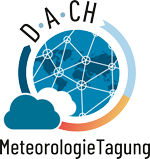The benefit of an artificial carbohydrates supply on Earth
- University of Heidelberg, Institute of Environmental Physics, Heidelberg, Germany (ulrich.platt@iup.uni-heidelberg.de)
Our conventional, biogenic agriculture (CBA) has failed to provide a reliable concept to feed a growing population in a sustainable way. In particular CBA suffers from severe environmental externalities - such as the massive use of land area, water for irrigation, fertiliser, pesticides, herbicides, and fossil fuel.
Here we suggest the artificial synthesis of carbohydrates from (atmospheric) carbon dioxide, water, and renewable energy, which would allow not only a highly reliable production without those externalities, but would also open the possibility to increase the agricultural capacity of our planet by several orders of magnitude. Our study shows that saccharose could be produced from CO2, water and electrical energy with an efficiency exceeding 30% equivalent to about 15 kWh per kg of sugar. Factoring in the efficiency of photovoltaic electricity generation we derive a „sun to sugar“ efficinecy exceeding 6%, which is about 10-times the efficiency of CBA sugar beets or sugar cane.
All required technology is either commercially available or at least developed on a lab-scale. No directed research has, however, yet been conducted towards an industry-scale carbohydrate synthesis because the CBA carbohydrate production was thought to be economically more competitive. However, considering the environmental and socioeconomic externalities of the conventional sugar production, this economical narrative has to be questioned. We estimate the production costs of artificial sugar at about 1 €/kg. Today’s spot market price for conventional sugar is about 0.3 €/kg, however, we estimate its total costs (including external costs) at >0.9 €/kg in humid regions and >2 €/kg in semi-arid regions. Accordingly, artificial sugar appears already today to be the less expensive way of production. The artificial sugar production allows in principle also for a subsequent synthesis of other carbohydrates such as starch as well as of fats. These synthetic products could be used as a feedstock to microorganisms, fungi, insects, or livestock in order to enhance also the sustainability of the biogenic production of, e.g., proteins.
How to cite: Platt, U. and Dinger, F.: The benefit of an artificial carbohydrates supply on Earth, DACH2022, Leipzig, Deutschland, 21–25 Mar 2022, DACH2022-57, https://doi.org/10.5194/dach2022-57, 2022.

